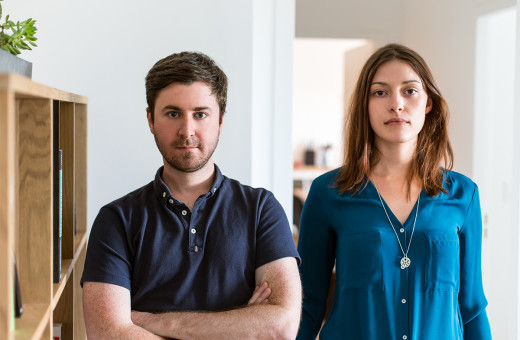1 Through our work at Design Friction, we aim to explore the incoming challenges inherent to the appearance of emerging technologies in our everyday life. In this perspective, our practice is influenced by the stance of speculative design, which we consider to be complementary to more conventional problem-solving design approaches. It reflects on the growing issues linked to the use of technologies, as well as on the role of the designer in resisting or reinforcing these problems. As such, our practice even gets close to activism.
This said, we also experiment on the limitations of Speculative Design practice itself, as we seek ways to answer these pitfalls. For example, we diversify our critical posture by using different mediums, such as games, experiential scenarios or toolkits. We also tend to have a pluridisciplinary approach to our projects, by using the methods or directly working with experts coming from other fields such as ethnography, economics or political sciences, to design fictions and frictions. In this way, we aim at involving non-designers, be them specialists in a topic or not, in the process of speculative design. It stands for participatory design methods for public issues by emphasizing the critical exploration of possible futures.
2 According to us, the core role of speculative design is to create discussions about possible futures and to try to define which ones are the most desirable for either the whole society or a given community. Obviously, groups of interests can defend divergent visions and it is usually challenging to find a common ground on which to discuss a given issue. The strength of our use of critical design lies in its contradictory posture. On one hand, it provokes people in regard of possible outcomes by making those scenarios tangible and visually striking. On the other hand, the issue is somehow detached from the audience by being set in an alternative reality where it has become the normality. This distance helps the involved public to take a step back on the tackled controversy and to see it under a new light. It is really the key to pushing discussions to uncharted territories of thoughts.
With this principle in mind, we aim to support strategic orientations in public policy making processes or their evaluation by involving all the stakeholders in the conversation. We do not only try to provoke and confront thoughts through our work, but we try to connect reflections with concrete opportunities of change. In this way, we also provide design material that can be reused by communities to reformulate our speculations and craft their own futures.
3 So far, we cannot say that we have been successful in making a living only by working on speculative design projects. However, we do not think it is a real problem as we work on a wide range of projects, which experiences help us to refine our understanding and develop our own practice of critical design.
We believe critical practices are profoundly needed in order to reflect on the effects and values embedded in today’s and tomorrow’s so-called technological or social innovations. This means that speculative design, not unlikely design thinking before, has to find the right arguments to advocate its promise to stakeholders other than cultural institutions. In a society obsessed with numbers, productivity and usefulness, speculative design can seem a futile exercise.
Actually, reaching for clients with a design fiction or speculative design posture might even sound a bit paradoxical. Indeed, speculative design is first an attempt for designers to avoid market and economic influences. Likewise, relying only on the exclusive funding and commission from specific communities of interest or institutions is a questionable approach to the practice. How can you really address independent critics to public policies and governance choices when you are funded totally or partially by public bodies? In this sense, we think it is a practice that is necessarily composed of self-commissioned projects and experiments carried by public-private partnerships.
